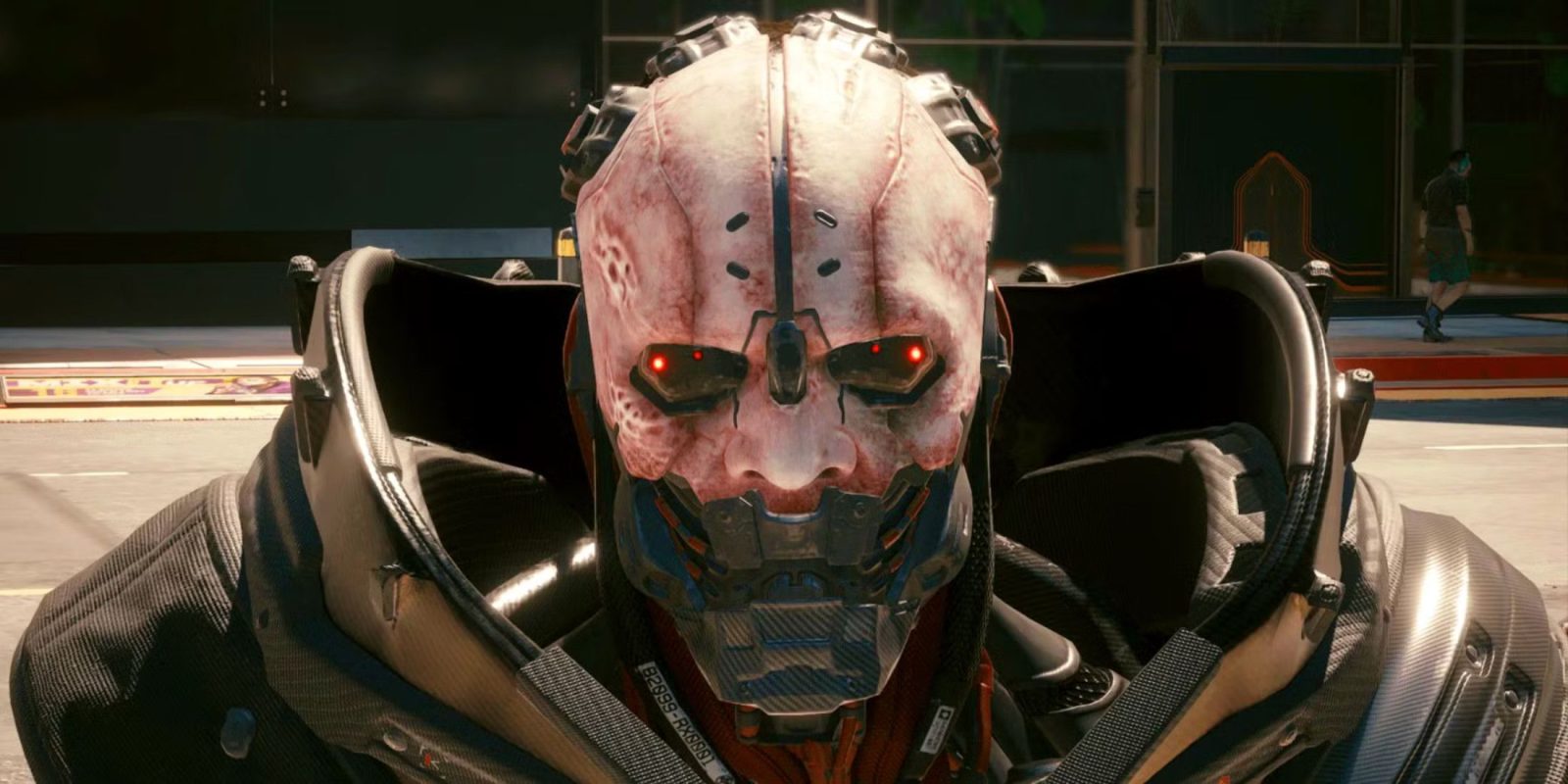The world of Cyberpunk 2077 had one easy advantage from day one: it was based on Mike Pondsmith’s rich and grimy vision of the future. Pondsmith’s unmistakable fingerprints, coupled with CD Projekt Red’s writing bona fides, helped make Cyberpunk one of the decade’s most enthralling game worlds to unravel, even with the bugs.
It’s this mature yet eccentric worldbuilding that makes Cyberpunk 2077 such a joy to explore, especially as AAA gaming continues to trend toward toothless, by-the-numbers, and designed-by-committee narratives meant to be as inoffensive as possible. Cyberpunk is certainly not what one would call “inoffensive” by any means: its world is mean, unforgiving, and, more often than not, cruel. Ripe examples of this cruelty can be seen in the game’s cyberpsychosis quest chain, where V is tasked with neutralizing Cyberpsychos scattered about Night City. On its face, these encounters are essentially mini-bosses, but there’s actually quite a bit of storytelling to chew on here. It’s unfortunate, then, that the game never realizes these stories’ full potential.
Related
Cyberpunk 2077 Coming to Mac Should Just Be the Tip of the Iceberg
Cyberpunk 2077’s arrival on Mac hints at bigger possibilities for CDPR titles, signaling a promising shift for Mac gaming potential.
Project Orion Can Capitalize On Something Cyberpunk 2077’s Cyberpsycho Quests Promised
The Shortcomings of Cyberpunk 2077’s Cyberpsycho Quests
Cyberpunk‘s cyberpsychosis side quests can be rather heartwrenching, as the player will discover fairly early on that, despite their violent dispositions, these “psychos” are actually victims most of the time. Text logs and other visual clues often reveal that cyberpsychos’ fiery rage is actually most terrifying for them: many are normal people, some using cybernetic enhancements to treat various medical conditions, while others are suffering from PTSD or other tertiary conditions exacerbated by the influence of their sick machinery.
Regina Jones, the Fixer who tasks the player with handling these disturbances, is aware of this, and thus requests that V take the psychos out non-lethally. Most empathetic people would agree that this is the most desirable outcome, especially as it becomes clear that these individuals are sick rather than fundamentally amoral or sadistic. This presents the player with an interesting dilemma: take the enemies out in the most efficient way possible, even if it means killing them, or take the riskier, but less lethal approach, thereby preserving V’s integrity and ethics?
It’s an interesting premise, but it sadly doesn’t amount to much. Whether V kills a cyberpsycho or lets them go, players will receive the same reward, with the only real difference being the end-of-mission dialog from Regina, who will scold or praise V depending on their actions. Ultimately, there is never be any substantial consequence or reward for V’s choices in this quest chain, which seems like a huge missed opportunity, especially since these missions are one of the very few venues where players can make use of Cyberpunk 2077‘s myriad non-lethal gameplay options; non-lethal play as a whole can wind up feeling inconsequential.
How Project Orion Could Double-Down On Cyberpunk 2077’s Cyberpsychosis Quest Design
The background writing for Cyberpunk 2077‘s cyberpsychosis encounters is consistently strong, which is why it’s particularly disappointing that they never lead to much. But Project Orion could build off this strong narrative foundation, providing similar missions or side activities built around cyberpsychosis, but with an actual reward or drawback based on the player’s decisions.
Significant differences in the narrative of such a quest chain may be the ideal route. For instance, perhaps the player-character could meet with rehabilitated cyberpsychos who thank them for showing mercy. Alternatively, the family or friends of a lethally dispatched cyberpsycho could hold a vendetta against the player-character, impacting the game in unexpected ways. Through such an approach, Project Orion can continue to explore cyberpsychosis, delving deeper into its sociological and philosophical themes while also being more narratively engaging than its predecessor.













Leave a Reply